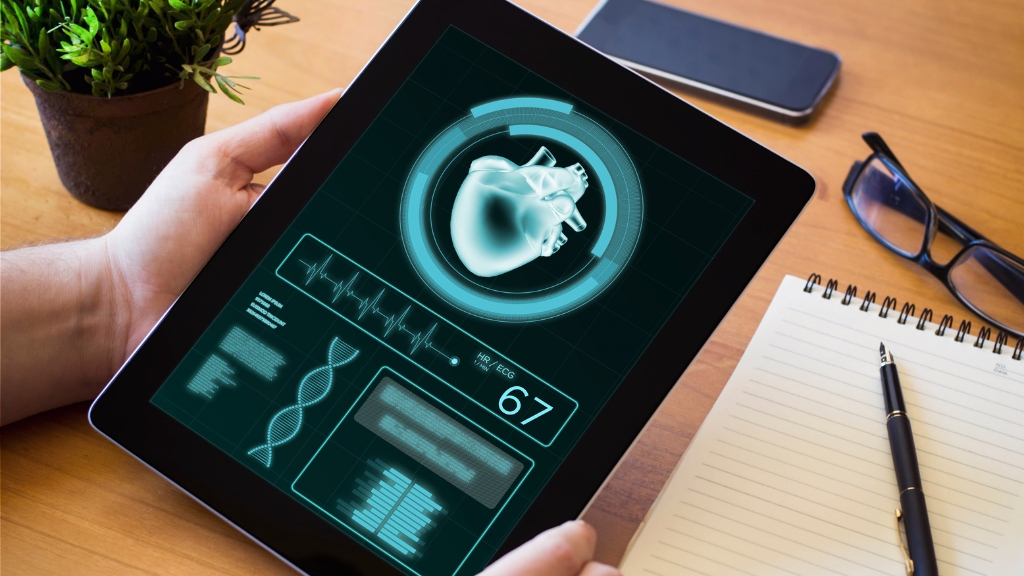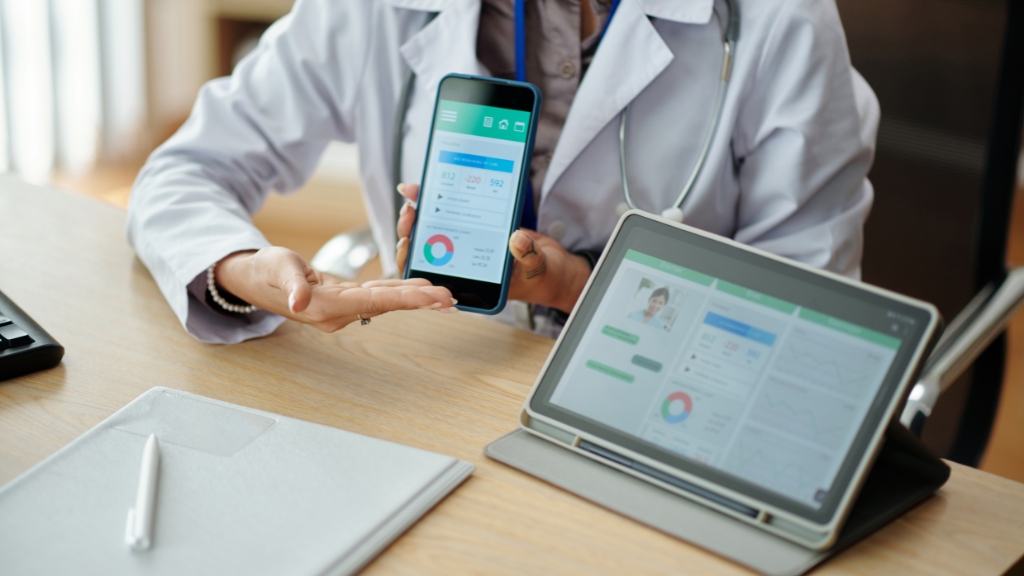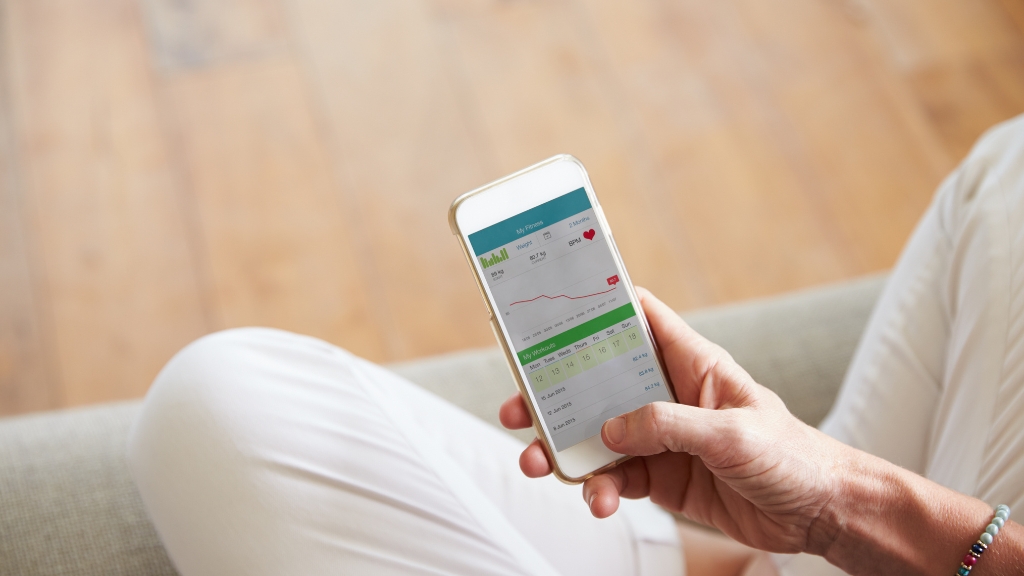
Future-Proof Your Health: The Advantages of Mobile Health Apps
Mobile health apps transform healthcare by empowering individuals to take control of their wellness in real-time. These apps have become increasingly essential for health management, offering a range of advantages, from monitoring chronic conditions to providing access to medical resources. Here’s a deeper look at the benefits and potential of mobile health apps.
Key Benefits of Mobile Health Apps
1. Accessibility and Convenience
Mobile health apps bring medical guidance and resources directly to the user’s device, providing instant access to tools for managing their health. Whether tracking medication, monitoring blood pressure, or accessing virtual appointments, these apps make healthcare more accessible to integrate into daily life.
2. Personalized Health Management
Health apps often offer tailored features based on user data, such as age, health history, and specific conditions. Through continuous monitoring, they provide personalized insights and recommendations, helping individuals make informed decisions. For instance, apps that monitor physical activity or diet allow users to track and modify behaviors over time to improve their overall health.
3. Real-Time Data and Monitoring
A primary benefit of health apps is real-time tracking of metrics like heart rate, blood glucose, and oxygen levels. This capability is essential for individuals managing chronic conditions such as diabetes or heart disease. By consistently recording data, health apps can provide early warnings of potential health issues, allowing for timely intervention.
4. Improved Patient Engagement and Self-Management
Mobile health apps encourage users to actively participate in their health by setting reminders for medications, facilitating symptom tracking, and offering educational content. Increased engagement often leads to better adherence to treatment plans and improved health outcomes.
5. Enhanced Communication with Healthcare Providers
Many apps enable direct communication with healthcare providers through telemedicine, allowing virtual consultations and follow-ups. This function is precious for people in remote or underserved areas, where access to healthcare professionals may be limited. By maintaining a digital record of health metrics, patients can easily share their progress with their doctors for more personalized care.
Essential Features in Health Apps
Successful health apps often include the following:
- Symptom Tracking: Allows users to log symptoms over time, offering valuable data for diagnosing and managing conditions.
- Telehealth Integration: Enables virtual consultations, making healthcare accessible from home.
- Health Records Access: Securely stores and provides access to health records, ensuring users have relevant information readily available.
- Medication Reminders: Helps users manage medications, improving compliance with treatment regimens.
- Educational Resources: Provides articles, videos, and tips on health topics to keep users informed.
Challenges and Considerations
While mobile health apps offer numerous benefits, they also present challenges. Data security and privacy remain top concerns, as health data is sensitive and highly personal. Users should select apps that comply with healthcare regulations, such as HIPAA, to ensure their data is secure.
Another consideration is the accuracy of app-provided information. While many apps provide valuable insights, they should not replace professional medical advice. Users should rely on apps as complementary tools and consult healthcare providers for significant health concerns.
Future of Mobile Health Apps
The future of mobile health apps lies in greater integration with advanced technologies such as artificial intelligence (AI) and wearable devices. AI-powered apps, for example, can analyze user data to predict health risks and recommend preventative measures, enhancing personalization and early intervention. Additionally, wearable devices that sync with health apps offer seamless health metrics tracking, creating a more comprehensive health profile for users.
As technology continues to advance, we can expect health apps to become even more powerful. They will support preventive care, improve chronic condition management, and foster a more proactive approach to health.
FAQs
1. Are mobile health apps safe?
Reputable health apps protect user data by following strict privacy and security standards. Choosing apps from trusted developers and checking for compliance with healthcare data regulations is essential.
2. Can mobile health apps replace regular doctor visits?
No, mobile health apps are designed to supplement healthcare, not replace it. They are valuable tools for self-management and monitoring, but professional medical advice is still essential.
3. How accurate is the data from health apps?
Data accuracy varies by app and device. It’s best to consult a healthcare provider or use medical-grade devices for critical health measurements.
4. What are the costs associated with mobile health apps?
Many health apps offer free versions with basic features, while others may charge for premium services, such as telehealth access or advanced tracking.
5. Can health apps help with mental health?
Many apps provide mental health resources, including guided meditation, mood tracking, and virtual counseling, which can effectively manage mental wellness.
Leave a Reply
- AI in Diagnostics: Revolutionizing Early Detection and Accuracy
- How AI and Advanced Analytics Are Transforming Healthcare Outcomes
- Investing with Confidence: The Role of ROI Calculators
- How ROI Calculators Drive Data-Driven Business Strategies
- The Ultimate Guide to ROI Calculators for Business Success
- Making Sense of ROI Calculators: A Comprehensive Guide
- June 2025 (1)
- May 2025 (1)
- October 2024 (2)
- September 2024 (31)
- August 2024 (31)
- July 2024 (27)
- June 2024 (28)
- May 2024 (30)
- April 2024 (33)
- March 2024 (23)
- February 2024 (29)
- January 2024 (3)
- December 2023 (47)
- November 2023 (36)
- October 2023 (23)
- September 2023 (2)
- June 2023 (2)
- May 2023 (13)
- April 2023 (1)




